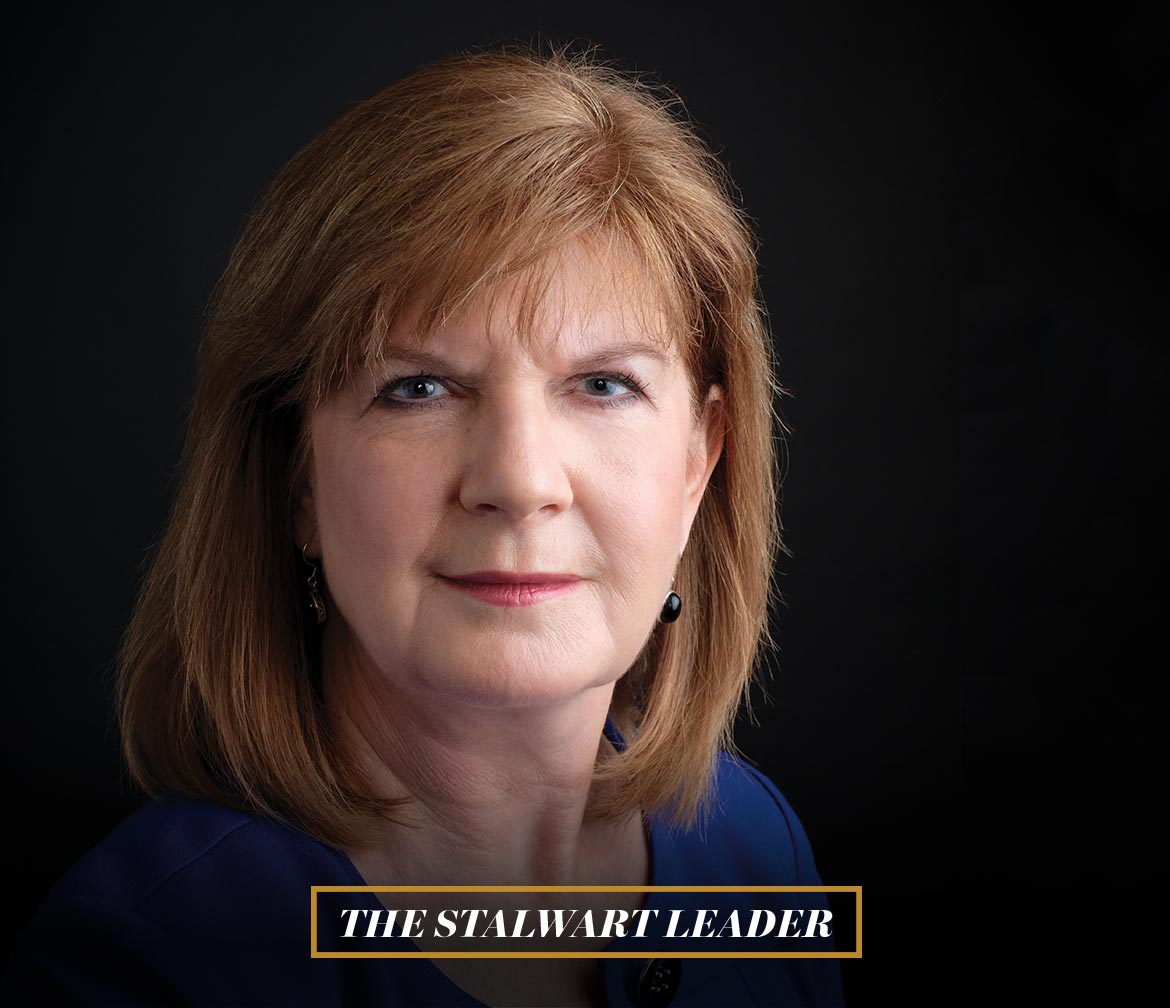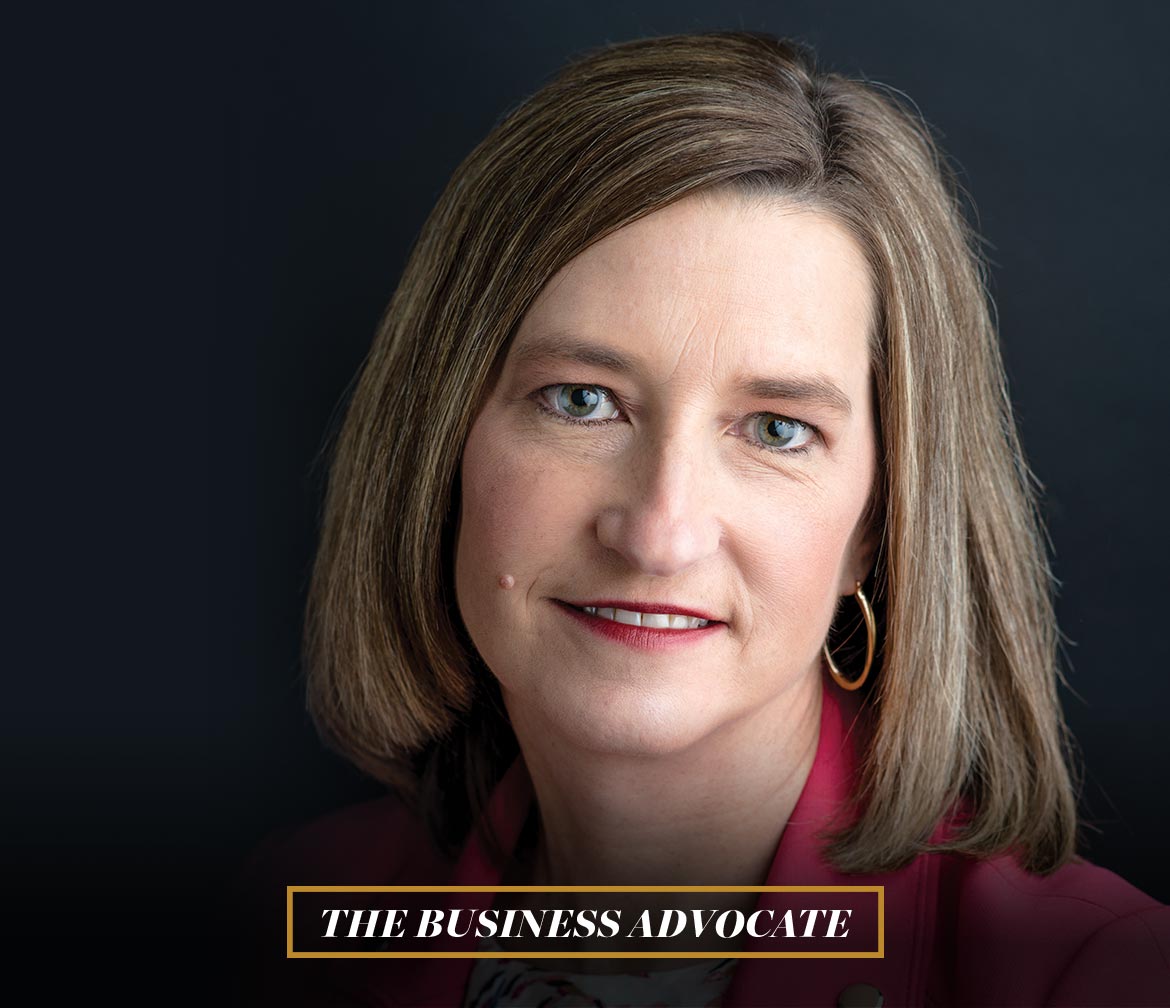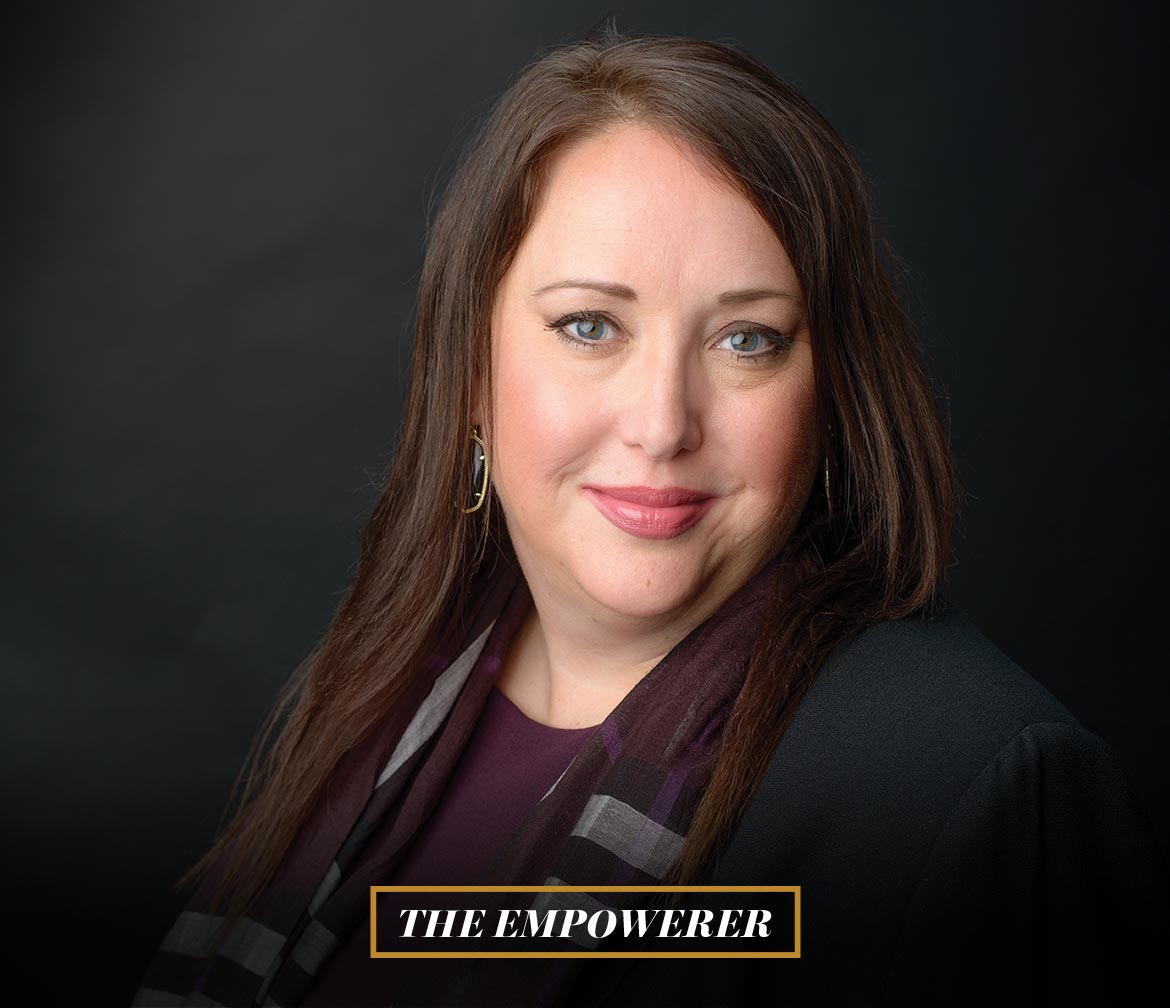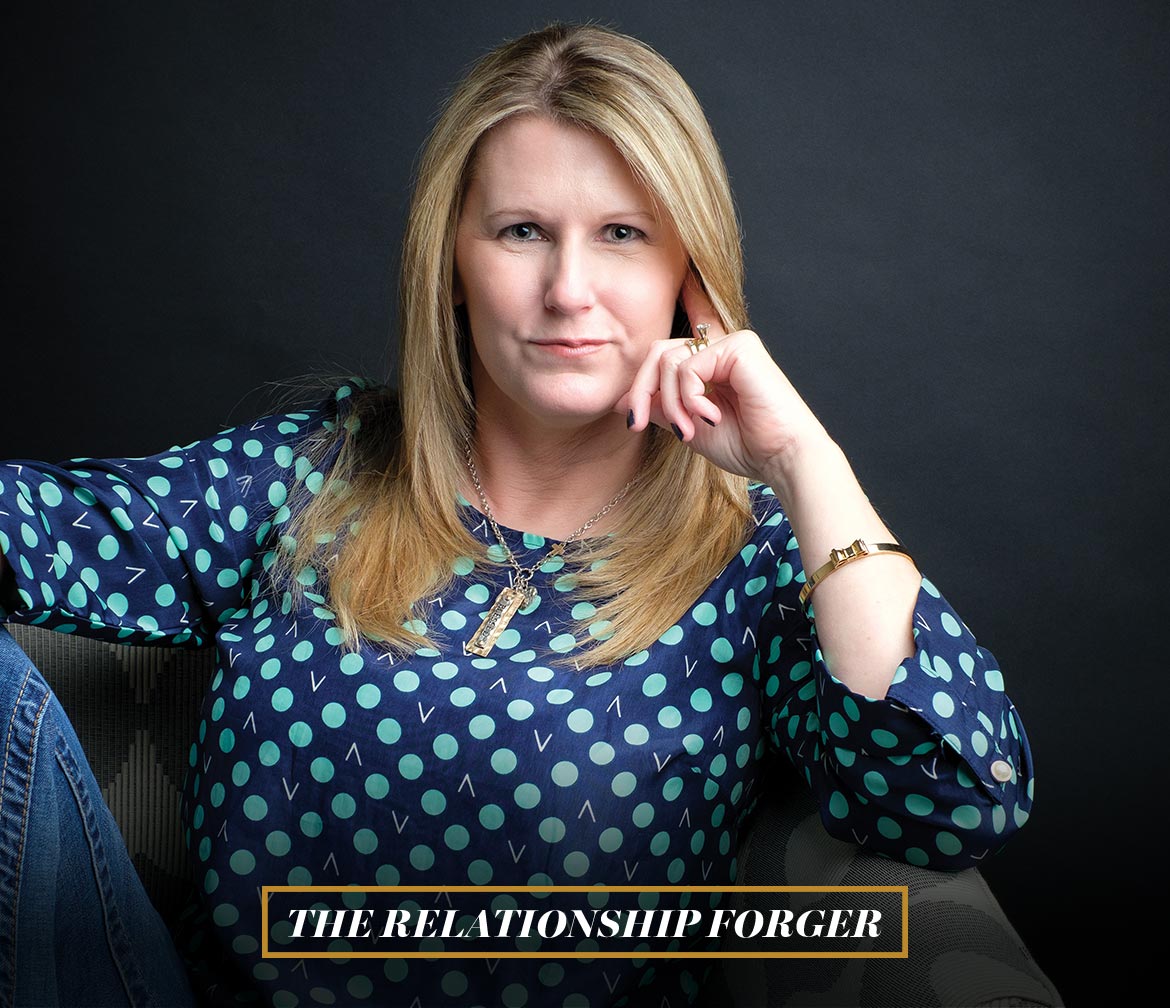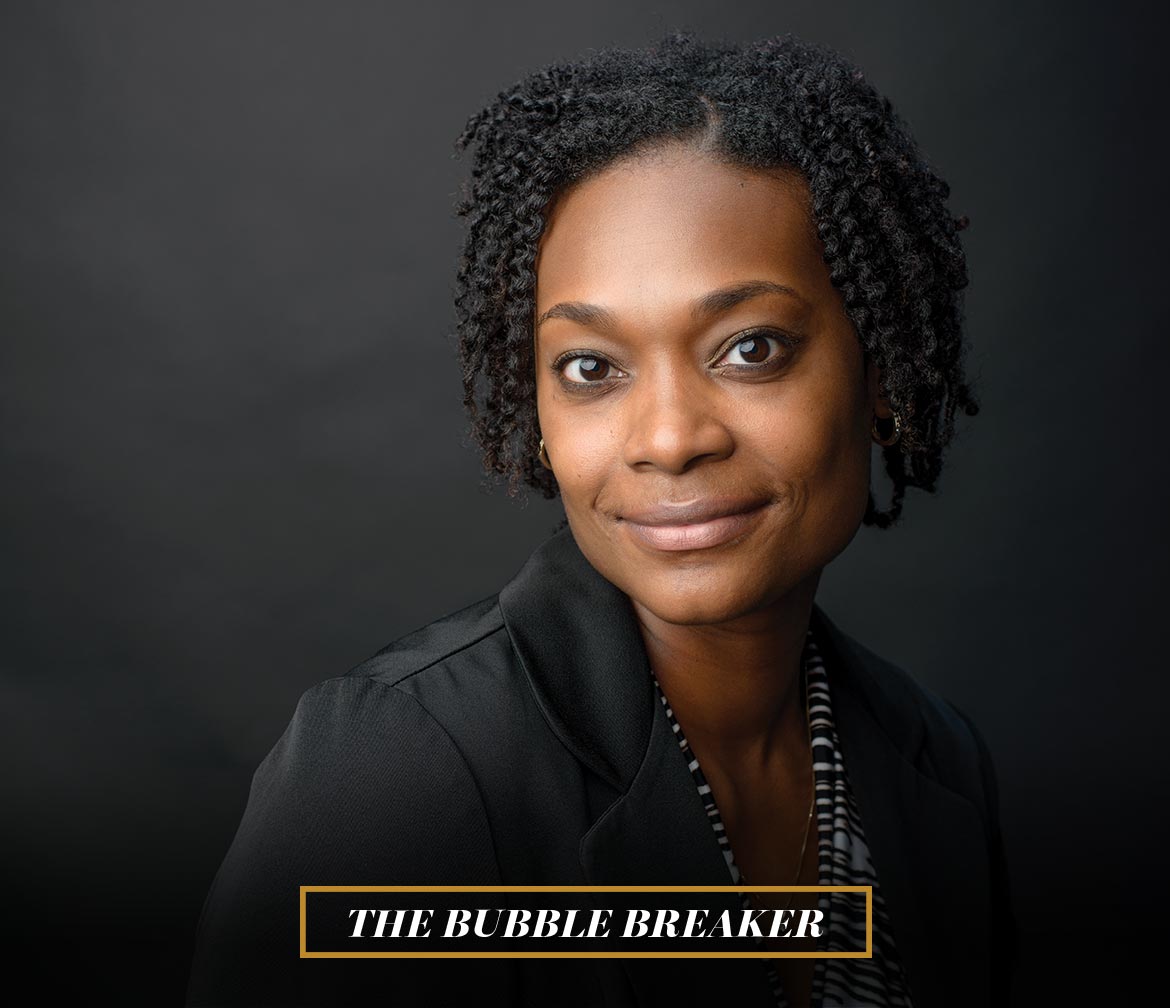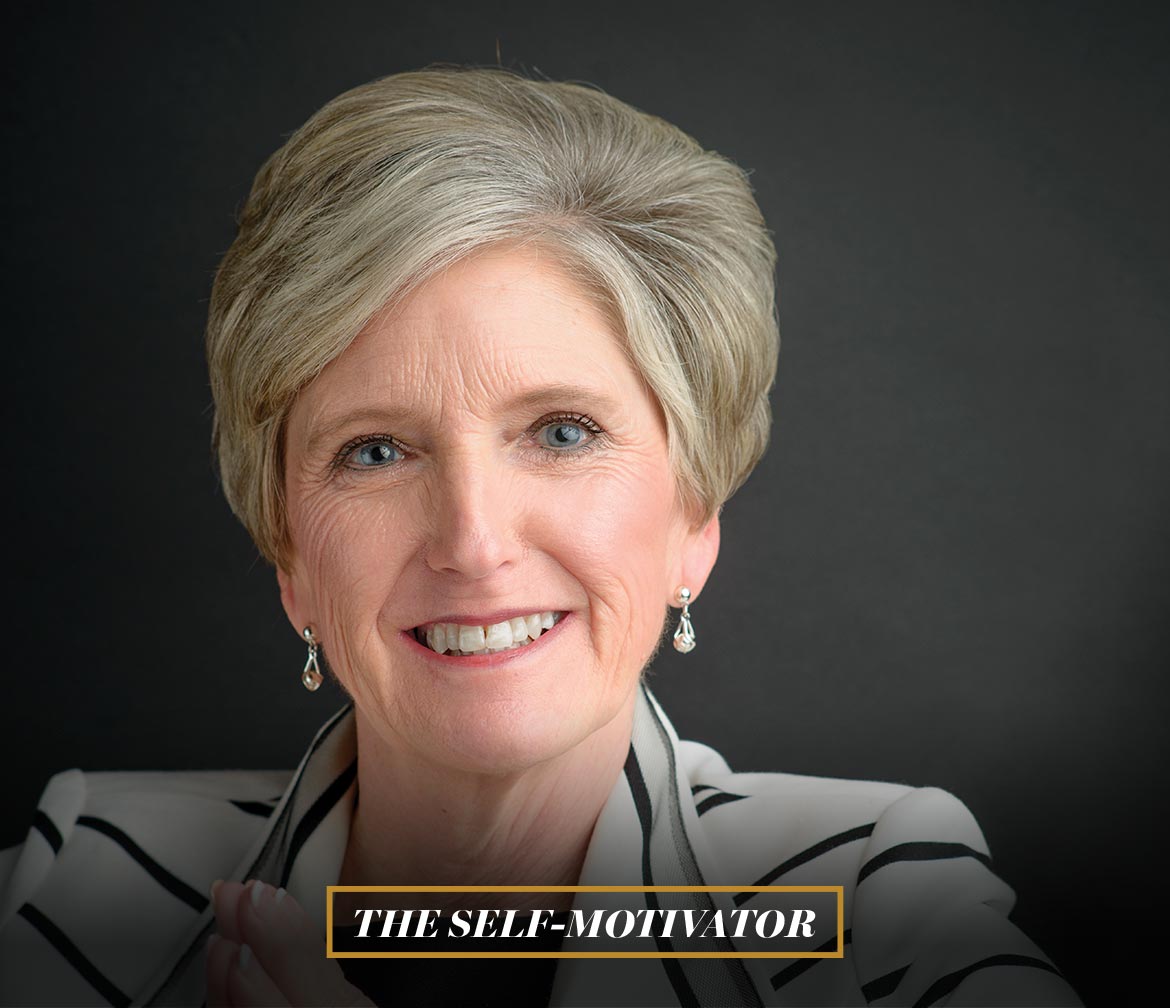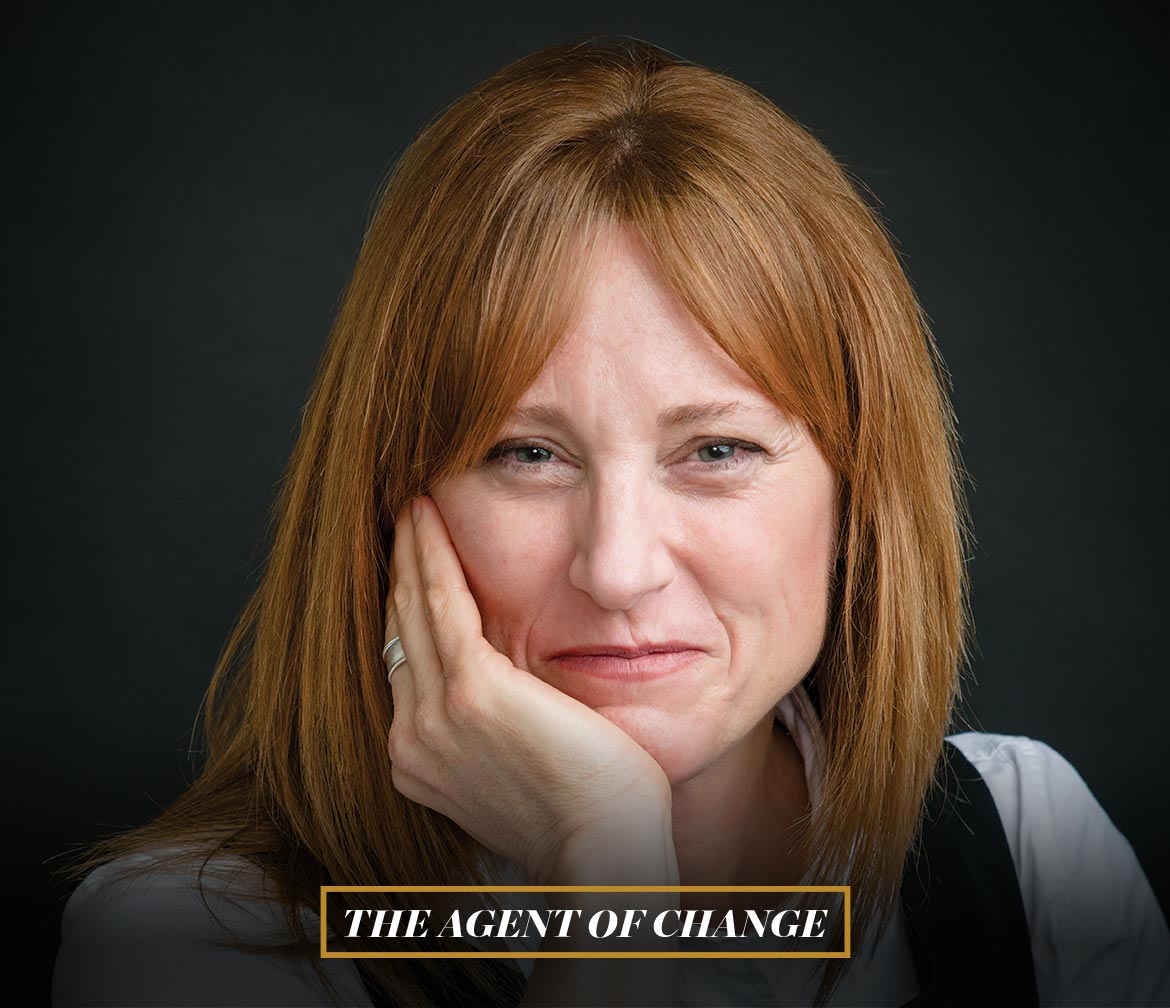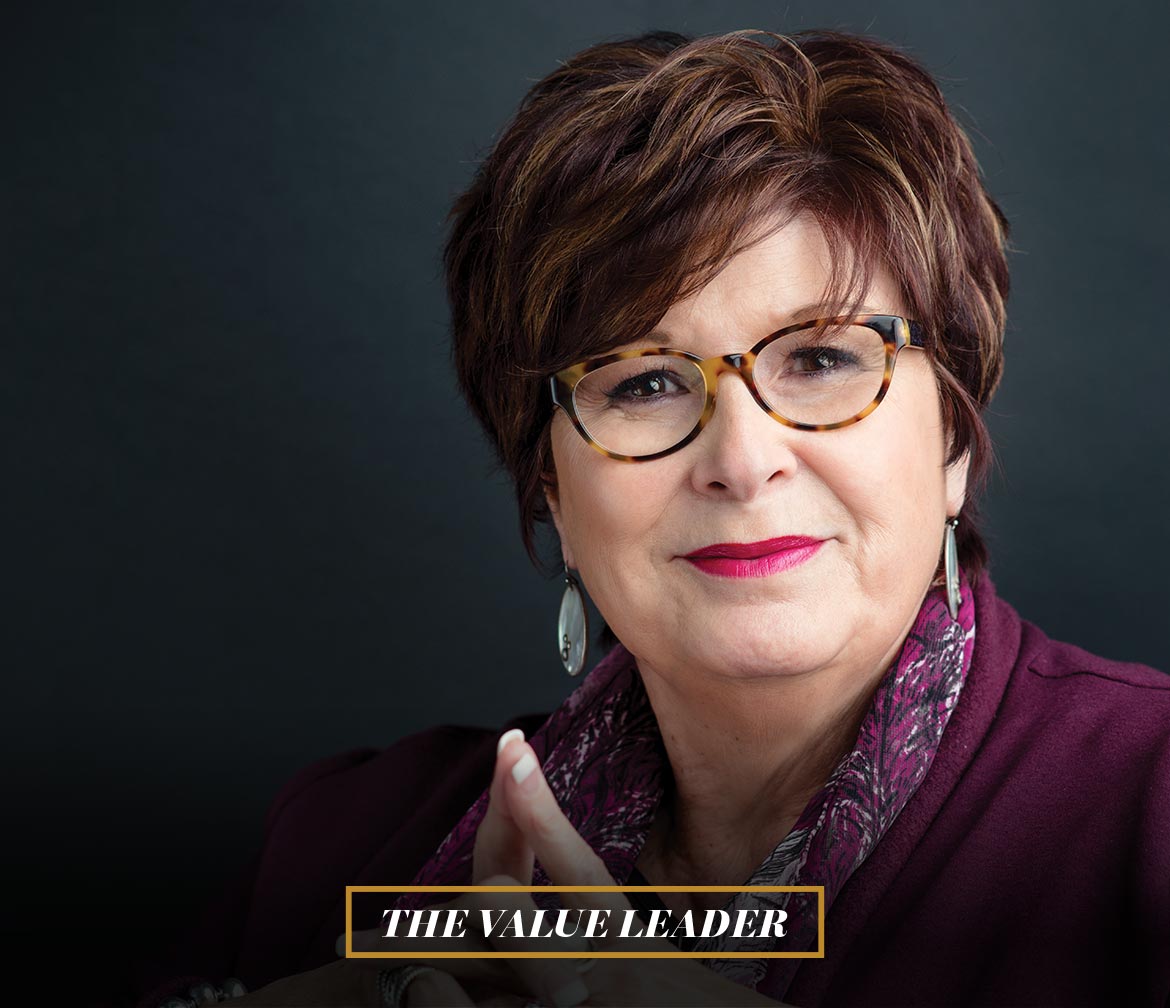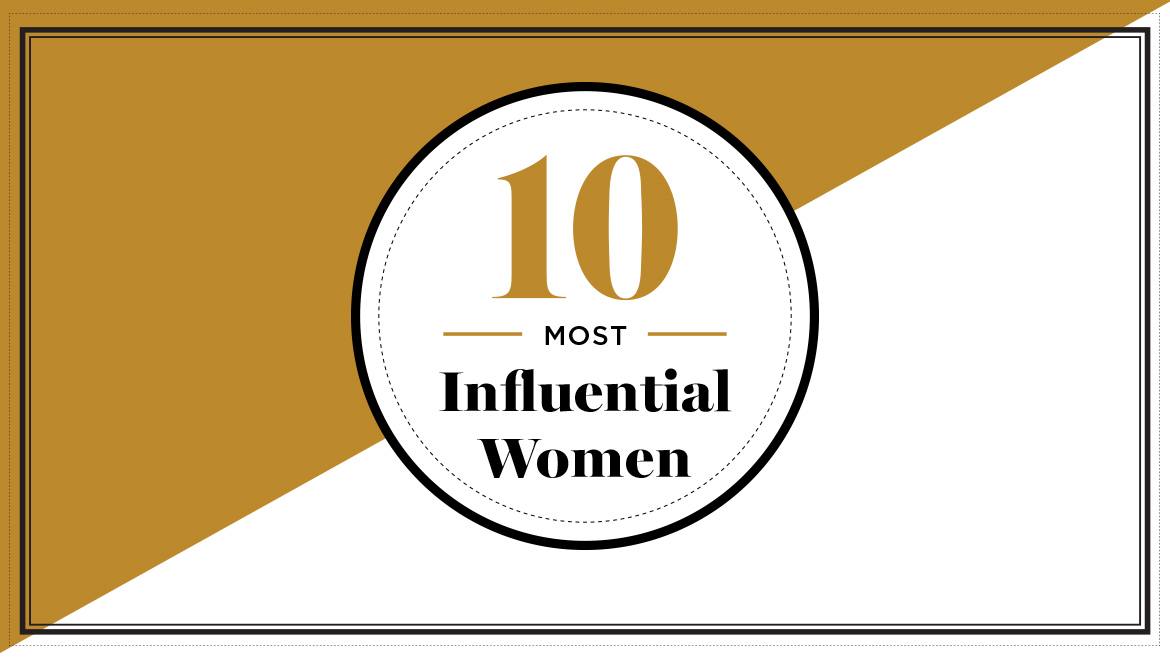
Say the word influence to 10 different people and you’ll get 10 different definitions. Influence means power, influence means thought leadership, influence means social standing.
In this issue of CBT, the goal has been to recognize women in the business community who make an impact. This list would’ve looked very different at the beginning of 2016. It’s been a changing-of-the-guard year, which makes this list all the more exciting: the perfect time to identify the women stepping on to this list. Readers nominated, we researched, a panel of community leaders weighed in.
We considered only women currently in the position that gave them influence for this list. There are many women of influence who have recently retired or stepped back from their careers. You can read more about some of those women on page 50 and 56. And of course, there are many more influential businesswomen not included in this issue. We commit to continue telling their stories and successes in the pages of CBT.
We present the 10 most influential women in business.
Want to recognize an influential businesswoman? Email us at [email protected] and tell us who should be recognized and why. As Dr. Dianne Lynch told us in her interview, “That is the greatest gift we can give each other: that recognition, that moment of being seen and named in terms of our own power.” So give us a shout.
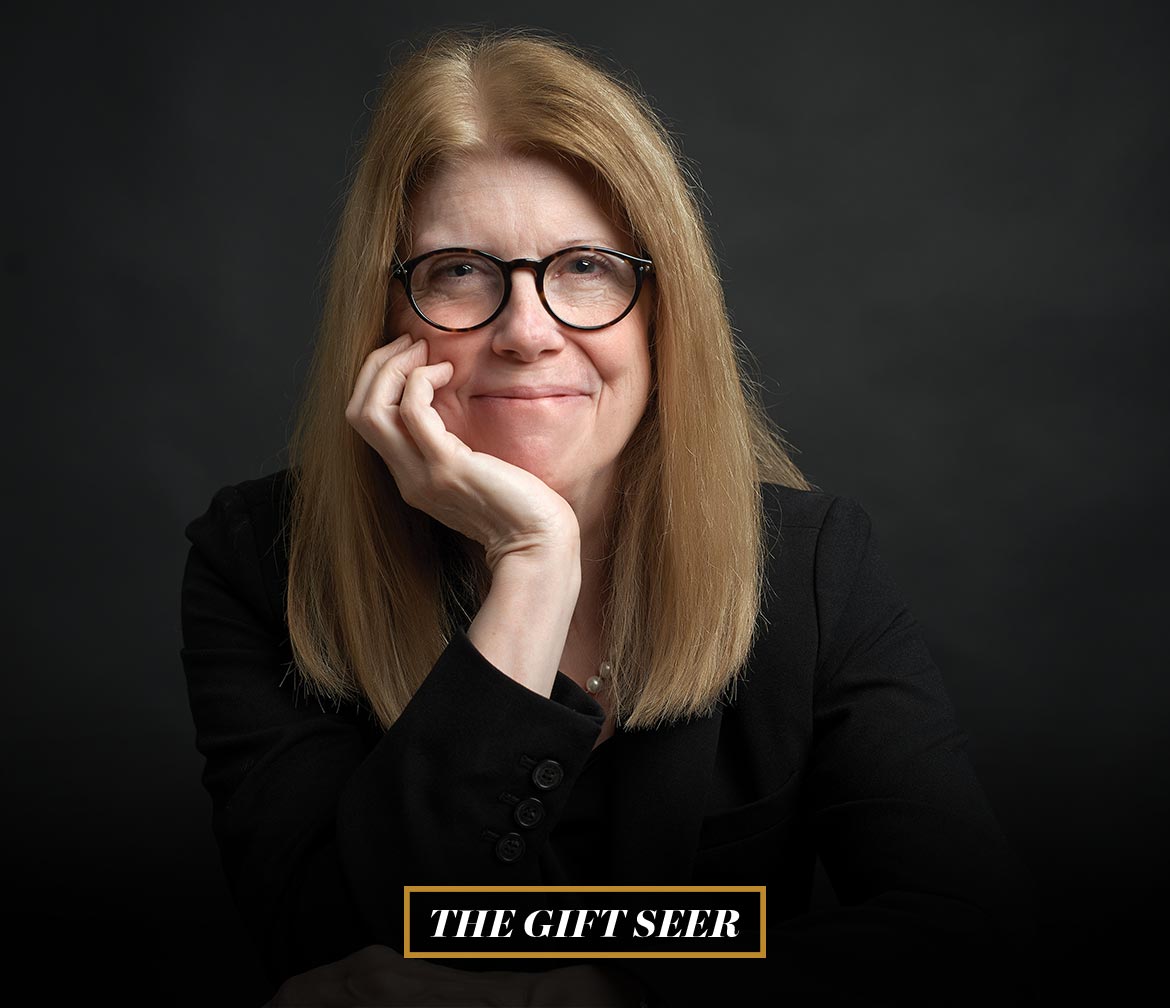
Dr. Dianne Lynch
President, Stephens College
There’s a ripple effect, says Dianne Lynch, surrounding every choice and every action. It’s a reason to be a force of good; you have an effect on everyone around you, no matter who you are.
Part of her responsibility is to not only be a role model to the women of Stephens College, but to call out the gifts she sees in the women who cross her path, naming for her students the things that are powerful or special within them.
A high school teacher named her gift and told Lynch she was a writer. It transformed her life.
“I’ve known thousands of powerful, brilliant, important, influential women, but when you ask about role models or people of influence in my life, it is those women who stopped me, looked at me, saw who I was and named something about me in some way, verbally or otherwise, that helped me build my own power,” Lynch says.
Recognition is the greatest gift one woman can give to another, she says, seeing a person and her gifts and influence. It’s a powerful moment to witness the lightbulb turn on in someone’s mind when she’s been “seen.”
“If I asked you, you could tell me there’s been this moment that somebody named something or somebody saw you the way you see yourself, but better, but more,” Lynch says.
She sees transformations happen in her students each day: women who realize that they must practice those gifts. Practicing leadership makes leaders. Practicing kindness makes kindhearted people. And that’s what they put out in the world. The ripple effect comes full circle.
“I hope that I consciously and intentionally model, wherever I am, whether it’s working with our amazing students, alumnae, in the community, that women have power,” Lynch says. “That there is a strength and an integrity to the ways that, at our best, women speak to the world.”
Teresa Maledy
CEO & Chairwoman, Commerce Bank, Central Missouri region
In her first managerial role, in treasury services, Teresa Maledy would spend her nights reading up on the banking industry to learn more, to get better. It was a role she pushed for, even after she was gently told it would be a possibility . . . someday.
To earn her promotion among all her peers, she used a mantra she still follows each day: Whether you’re in a staff meeting or working with a client, you’re interviewing every day for the next job. You’re showing everyone what your personal brand is.
“You need to conduct yourself on a day-to-day basis so that, if you do have those opportunities to be promoted, your peers will say ‘that’s a natural selection,’” Maledy says.
What’s her personal brand? Maledy says she tries to be calm, consistent, respectful, and positive.
“I think it’s important, whether you’re male or female, that whatever is going on, maybe in your home or in your personal life, you make sure that you check that at the door,” Maledy says. “Because your team is counting on you and if they are going to deliver their best work, you have to be on your game every day.”
Opportunities opened to Maledy because she stepped up to them. “I always raised my hand for task forces or committees because, first, it was interesting and I was trying to solve problems again, but it also gave me exposure to so many different areas that I wouldn’t have even been aware of,” she says.
And for the leaders in place today, like Maledy, it’s about giving opportunities to emerging individuals. “Giving them a little bit more than they think they can chew is good because people grow, they build that confidence level just like I had to, and it makes their job more interesting.”
Heather Hargrove
Sales Manager, KRCG
Heather Hargrove’s Kindergarten teacher reported to her parents that she did not need a teacher’s assistant: She had Heather.
“My dad came to school one day and said he finally got a glimpse, because I was in the hallway and I was making all the kids get in a straight line so that we could go outside for recess,” Hargrove says. “So I was born that way.”
Hargrove, former chair of the Chamber and still an active leader in the organization, has spent time in the last month using the same skills: reaching out to Chamber members, mobilizing them to participate in a city council candidate forum and represent their own interests.
“We have to help be the implementation, the feet on the ground, the voices that reach out and talk with the local leadership to help shape and form [policy],” Hargrove says.
Her advocacy started while sitting in a Chamber meeting in the early 2000s. People kept saying “they” needed to take action. “It dawned on me all of a sudden that we are the ‘they’,” Hargrove says. “We can’t just sit around in a circle at a table and talk about these things.” That realization led her on a journey to serve as president of Women’s Network and, ultimately, in her position as chair.
Today, she’s a leader in government affairs and emerging issues and continues to reach toward her goal: keeping the business community informed and ahead of the curve on new challenges and opportunities. She tries to make sense of challenges Columbia faces and represent the membership’s interests.
“If we’re creating business opportunities, we’re putting people to work, we’re generating revenue, we’re creating partnerships with people both personally and professionally,” Hargrove says. “That’s what makes the world go ’round.”
Elizabeth Mendenhall
CEO, RE/MAX Boone Realty
Elizabeth Mendenhall is a sixth-generation Realtor, the CEO of RE/MAX Boone Realty, and the 2017 president-elect of the National Association of Realtors, the largest trade organization in the world.
These leadership roles give her a platform to empower agents, increase their market value knowledge, and equip them to be advocates for homeowners.
“Buying a home is the one big transaction that brings equity, savings, and security to people’s lives,” Mendenhall says. “It’s part of the American dream for everyone.”
Through the years, Mendenhall has been inspired by her dad, Richard Mendenhall, and fellow realtor Sharon Kinden. “They would always ask questions,” she shares. “They didn’t just want the first answer, but the right, best solution. They didn’t want to be good enough, but to stand above everyone else.”
Mendenhall also finds motivation from those around her. “I get to work in the real estate sector, surrounded by amazing independent contractors who want to be where they are every day,” she says. “It’s inspiring. They want to learn and do their job better.”
Mendenhall describes herself as fearless and not afraid to push boundaries. She’s guided by what she calls “Elizabeth’s Three Es” – energy, experience, and empowerment.
Mendenhall encourages expressing differing opinions. “Better decisions are made when diversity is at the table,” she explains. “The friction creates something better.”
It’s all about empowerment. Mendenhall believes in releasing the potential of others for the greater good. “Everyone has something valuable to offer,” she says, “and capitalizing on that yields a better result.”
Mendenhall encourages leaders to be open to new ways of doing things, especially with different generations. “You must lead differently for different people,” she says. “If you get stuck in an old style, you miss the opportunity to have greater influence.”
Michele Spry
President, Midway Electric Inc.
If you met Michele Spry at a Chamber event circa 2006, you might not have recognized her. “Those women intimidated the hell out of me,” Spry says. She’d typically change out of her blue jeans — natural work attire for the president of an electric company — and don more run-of-the-mill business attire. One day, she decided not to, and she kept on her jeans.
“I decided that either they were going to like me for who I was or I wasn’t going to be liked at all,” Spry says. “And it was okay either way, you know. I was just trying to figure out where in life [professionally] I needed to go.”
It made her feel approachable, authentic, Michele. It was freeing — and she hasn’t looked back. Spry’s focus on being herself has led to deep relationships in the community and a focus on achieving her goals, whether they’re for Midway Electric, Inc., Central Missouri Honor Flight, Honor Everywhere, or herself.
Today, Spry is a mentor with Women’s Network, building relationships with a mentee to help achieve someone else’s goals. She says making friendships in business is what leads to growth and development, to getting things accomplished. It’s about finding someone to bounce ideas off of, someone who will hold you accountable, who will be stern, or possibly someone who’s had your experiences.
So if you take a lesson from her, find the people who will help you, support you, and back you up. And then turn that relationship around and be someone who supports your tribe.
“You know in your head before you even ask the question what the answer is: You just need somebody to tell you because you always second-guess yourself as a woman,” Spry says. “We always second guess ourselves, and sometimes you just need someone to give you a swift kick in the ass and get you going.”
Shatenita Horton
Vice President, Providence Bank
In her conversations, her work, and her many volunteer gigs, Shatenita Horton brings unlimited enthusiasm. “All my positions have been very different,” she says, “but they all require that little bit extra — a little bit more energy.”
Since starting as a teller in 1999 with Boone County National Bank (now Central Bank of Boone County), Horton has taken a frenzied climb through the ranks of Columbia’s banking world. She held various roles at BCNB before moving to Providence Bank as vice president overseeing security and managing the branch in south Columbia.
All that experience may still be less robust than her volunteer resume. She’s currently the co-chair for Leadership Columbia (of which she’s an alumna) and involved in a variety of other Chamber groups. She’s on the board for Voluntary Action Center, True North, and the Columbia Public Schools Foundation, and she’s a past president of the Alumni Association Board for Stephens College.
“I’m huge on giving back,” Horton says. “Watching [my mom] work really hard, I knew I was going to have to do that, but also help others who weren’t able to do all these types of things.”
Volunteering also allows Horton to break out of her professional circle and interact with other parts of the community. “I just don’t think people realize a lot of what’s going on that you don’t see everyday,” she says. “Just bringing in some of those businesses that people don’t see and putting them in front of people like me who are out and about — I think that’s going to make a huge difference for our city.”
And, of course, she’s enthusiastic about leading the way for young women hoping to make a similar impression on their community. “That’s probably how I influence people: just by being an example,” she says. “Especially to younger folks — because I’m getting up [in] that range now.”
Karen Taylor
Executive Vice President, Central Bank of Boone County
Karen Taylor works every day to build a reputation as someone who gives back.
“I feel strongly that everyone has a responsibility to give back to the community in which we live and work. The community is better when we give our time and talents,” Taylor says.
From the very beginning of her career, Taylor involved herself in committees and volunteer organizations she felt passionate about, advice she gives to people entering the working world.
“If you raise your hand when you’re asked for help and you do a good job, they’ll ask you again,” says Taylor. “Once you’ve proven yourself to be reliable and dependable and do quality work, you’re going to be asked to do other things. Over time, you build a reputation and people know they can count on you.”
In 2009, Taylor’s son was a victim of violent crime, and she was again driven to positively influence her city.
“As a mom, I was determined to make a change in our community, so we campaigned for safety cameras downtown,” says Taylor. “That was a big ‘a-ha’ for me because it took so much grassroots effort. It’s hard to make change. It takes a lot of determination and persistence and being told ‘No’ to make change.”
Taylor is motivated by an internal drive to do well and be a person you come to for help. “It is important to me to be respected and for people to think of me as someone with integrity and character,” says Taylor. “I’ve always approached everything in that way. I try to give everything my best, and that’s all anyone can do.”
Dr. Carrie Gartner
Executive Director, The Loop
When Carrie Gartner was finishing her doctorate, she wrote down the three jobs she wanted: teaching at a college, organizing political campaigns, and running a downtown organization.
She’s done all three. Today, she’s leading the team improving the Business Loop 70 area.
“Growing up in California,” Gartner says, “people would say ‘are you a beach person or are you a mountain person?’ And I would always say, ‘I’m a central business district person.’ So I’ve always liked cities.”
The diversity, the bustle, the innovation. Working on improving The Loop presents an exciting set of challenges.
“We want a place that people feel has an identity, like they’ve arrived at some place special,” Gartner says of The Loop. “The hardest part about that is that it is a long-term project, and you have to keep excited and you have to keep everyone else excited about changes that may not happen for years.”
Gartner and The Loop endured controversy during its infancy. She got through it knowing they were striving for something good for the city and it would take some time to ride the “crisis curve” until the change normalized.
Riding that wave of change speaks to something innate in Gartner, and it’s also what she loves about cities.
“There is always a new way of doing things or a better way of doing things,” she says. “And, as a city’s population changes, the city needs changes. So you have to constantly be reinventing yourself and reinventing the job.”
It’s about anticipating what the future will be and preparing yourself for it — a lesson she shares with her design students at Stephens College.
“You don’t want a student to know what boxes to punch to get an A,” Gartner says, “[But rather] reiterating an idea and constantly improving it and understanding that you’re never really done.”
Kat Cunningham
President, Moresource
Kat Cunningham’s employees describe her as fast and furious. A mover and shaker. Someone who gets it done.
“They also love to hear me laugh,” Cunningham adds with a smile.
Cunningham founded Moresource in 1994 to manage employee-related matters for businesses, allowing them to focus on their core functions. More recently, she started a nonprofit called Abilities for Business that connects companies with other nonprofits to help those with “different abilities” find employment. Her inspiration comes from her sister with Down syndrome, who has a job and lives in a group home in Texas.
“I’m passionate about the things I’m involved with,” Cunningham says, “and that translates into influence.”
Cunningham is driven to lead by example — to be a role model for those around her. She has found encouragement from people like Mike Alden and former Alabama Crimson Tide football coach Gene Stallings.
“They know how to get you going about your life’s direction,” Cunningham says, “to move you to live your life like someone’s watching.”
Cunningham refuses to hold grudges and meets conflict head on. “As you age and become more visible, you also become more purposed and intentional about your actions.”
For her, that circle of influence includes her real family, the 17 members of her Moresource family, and her 4,600 Facebook friends.
She is also motivated by the qualities she sees in her nieces, MU basketball players Lindsey and Sophie Cunningham. “I have learned so much from them about being gracious, humble, and appreciative,” she says. “I don’t want to take things for granted.”
Cunningham plans to continue her influence by living out her values and encourages young leaders to do the same. “You have to be you,” she says. “Stop focusing on the things you’re not and just be genuine.”
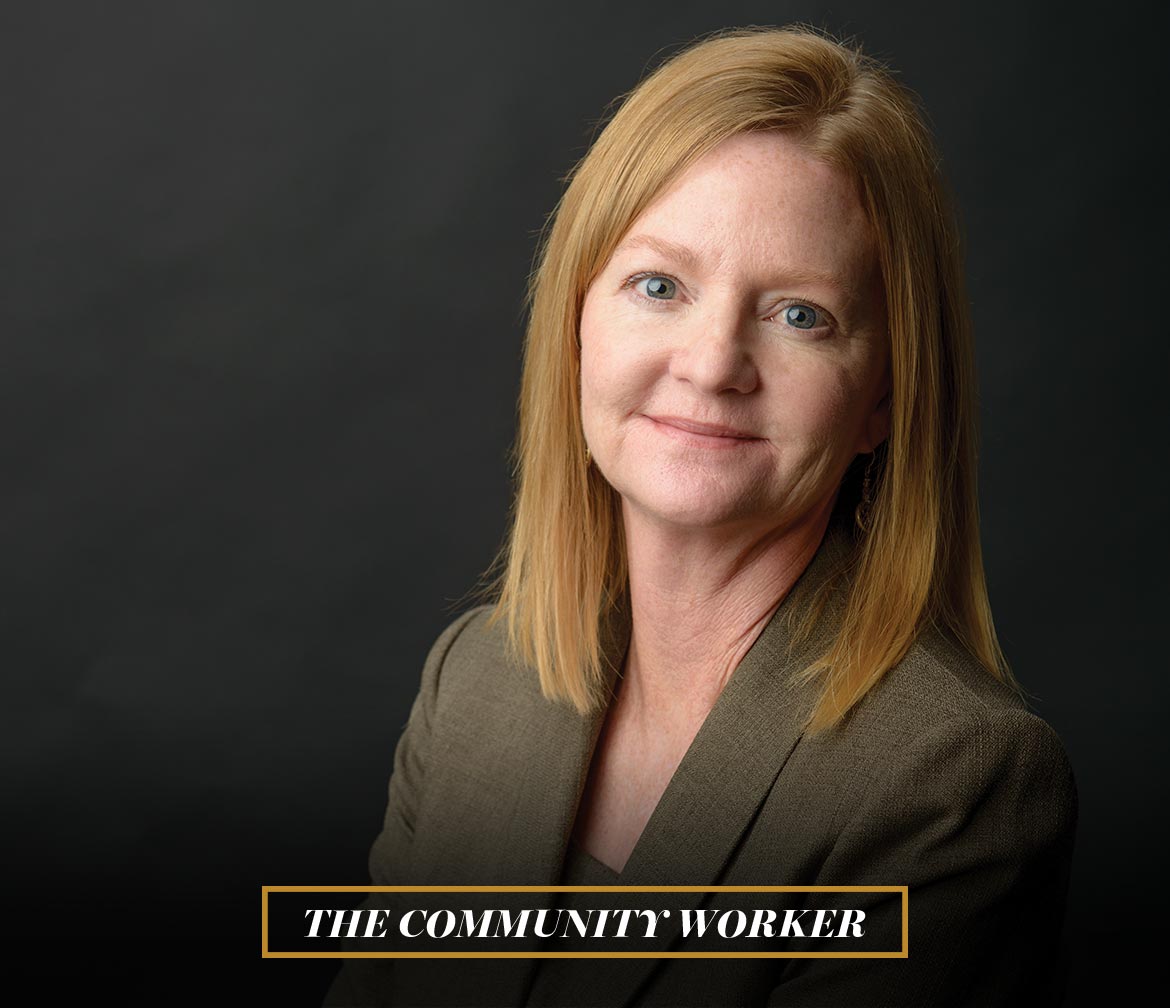 Stacey Button
Stacey Button
President, REDI; Director of Economic Development, City of Columbia
Stacey Button, executive director of REDI and director of economic development for the City of Columbia, makes a lot of news. But that’s not her comfort zone.
“While I love to work behind the scenes and work hard, and I’d love to wear my baseball cap to the grocery store on Sunday so nobody recognizes me, this work is impactful, it’s life-changing,” she says. “Visibility comes with this position, but it’s so important to me because it comes back to relationships.”
Button is something of a newcomer — she came to Columbia two years ago — and her relationships have helped her find a place in the community. REDI works in the private and public sector, and with entrepreneurs as well as massive corporations. Button revels in the diverse connections she’s been able to make. “Their willingness to welcome me as an unknown, to accept me, to work closely with me, to teach me and support me — it speaks volumes about the people here,” she says.
Button is constantly counseling new businesses, but she’s also led the expansion effort at Columbia Regional Airport and helped recruit businesses like Aurora Organic Dairy, which is opening a facility in town to support 140 living-wage jobs. When Button talks about her work, she often talks about doing things for “the right reasons.” For her, the right reasons are always other people, and that’s where her focus stays.
“When your mission is to create and retain quality jobs in the community, it comes back to the people,” she says. “And we’re all here to raise that level. It’s pretty powerful stuff. And it’s not about me, you know? I guess that’s why I struggle with this ‘influential’ term, honestly, because it takes all of us. There are great people who are all working together for the same purpose. That’s what drives me.”



